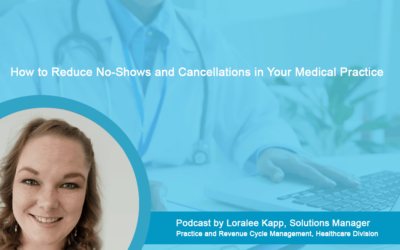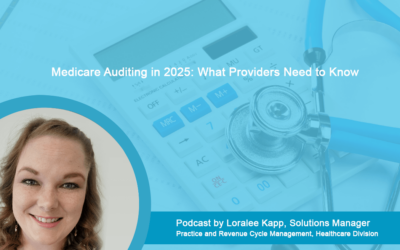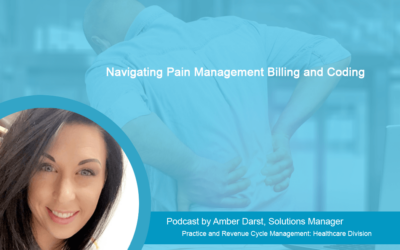OSI is one of the leading medical coding companies in Tulsa, Oklahoma, dedicated to providing quality and affordable medical billing services for all medical specialties.
In this podcast, Natalie Tornese, one of the senior solution managers of OSI (Outsource Strategies International) provides listeners with information about Modifier 24.
Read Transcript
Hello everyone and welcome to our podcast series. My name is Natalie Tornese and I’m the Senior Solutions Manager for Outsource Strategies International. I wanted to talk a little bit about modifier 24.
Modifier 24 is to be used to report an unrelated E&M service during the global period of a previous procedure, including services by other “same-specialty physicians”. This means that a surgeon covering postoperative patients for his or her partner does not bill for services provided. Physicians in the same group practice and in the same specialty must bill and be paid as though they were a single physician.
For CMS, all medical and surgical post-surgery complications are included in the global payment and cannot be billed separately unless a return to the operating room is required. Treatment of wound infections and other complications cannot be reported. CPT defines the surgical package as “typical” postoperative care. Medicare has classified major and minor surgeries and has determined what services are inclusive and not inclusive with the global package.
Medicare has also determined the preoperative and postoperative days allowed for each type of surgery. The preoperative period included in the global fee for major surgery is one day, with 90 days for the postoperative period. The preoperative period for minor surgery is the day of the procedure, with the postoperative period of 0 or 10 days, depending on the procedure. For endoscopic procedures, except for those requiring an incision, there is no postoperative period. All global period days can be accessed on the CMS website for review.
Correct use of modifiers makes claims processing easy and providers receive the due reimbursement without any hassle. On the other hand, incorrect use of modifiers will result in payment denials and other complications.
A surgeon can report a typical postsurgical care for medical complications using modifier 24 for E&M services. In this case, the complication diagnosis code has to be used first on the claim form. If the patient is seen by other physicians during the global period, they need not use modifier 24. Only the surgeon who performs the operation and his or her same specialty partners or covering surgeons need to use modifier 24.
So let’s talk about the correct and incorrect uses of this modifier. The keywords to remember are ‘unrelated’ and ‘outside of’.
Use modifier 24 on an unrelated E/M service that starts the day after a procedure, when the E&M is provided by the same physician during the 10 or 90 day post-operative period.
You append modifier 24 to the E&M procedure or exam.
Use modifier 24 on the E/M if documentation shows that the service was entirely for treatment of the underlying condition and not for post-operative care.
You use it on the E/M code when the same physician is managing immunosuppressant therapy during the postsurgery period of a transplant, or when the same physician is managing chemotherapy during the postoperative period of a procedure.
Use it when the same physician provides unrelated critical care during the post-surgery period.
An appropriate example of appending modifier 24 to an E&M code is if the physician treats the patient for migraines during the post-operative period, and the migraines are considered unrelated to the surgical procedure.
The incorrect use of modifier 24 is as follows:
It cannot be used for a surgical complication or injection because the treatment is considered part of the surgery package.
It cannot be used to document treatment of a wound infection — consider this part of the post-surgery care.
It cannot be used when the surgeon has the patient admitted to a skilled nursing facility for a condition that is related to the surgery.
It cannot be used when the medical record documentation does not clearly indicate that an E&M was unrelated to the surgery done.
Do not use modifier 24 outside of the post-surgery period of a particular procedure, and it cannot be used on the same day of that procedure.
I hope this helps. Always remember that proper documentation as well as a thorough knowledge of payer regulations and guidelines is critical to ensure accurate reimbursement for the procedures performed.
Thank you for listening.



